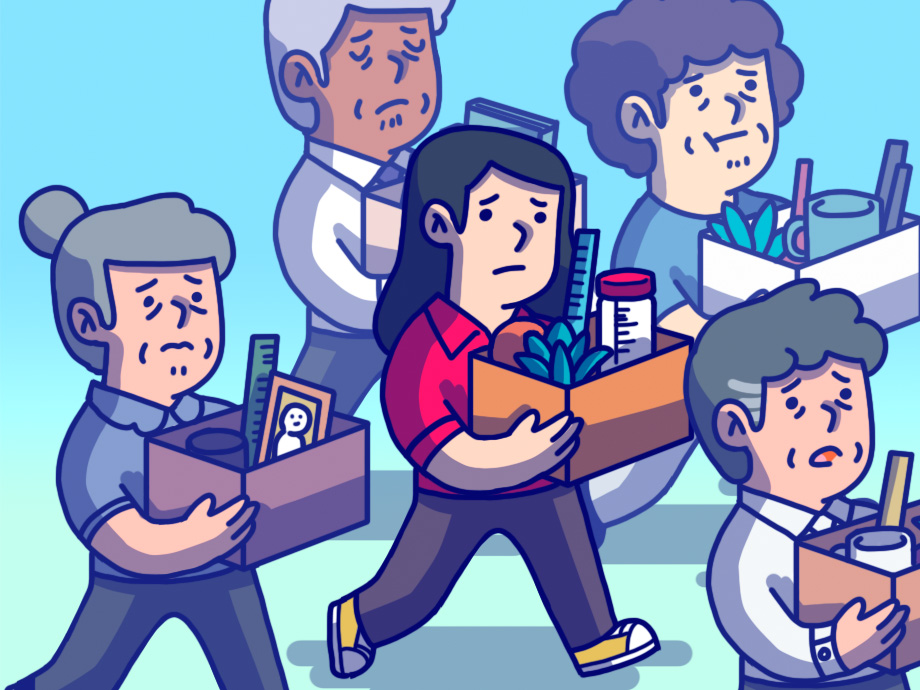Career & Education | Life | Article
Can Tech Jobs Go the Way of Engineering?
by Sophia | 24 Sep 2019 | 7 mins read

Nowadays it’s common to hear people praising the glitz and glam of working in tech startups. It seems as though tech roles are becoming more popular than ever, with attractive remuneration and exciting progression to look forward to. But in the past, another type of career ruled center stage: engineering.
And in Singapore, engineers used to be all the rage regardless of specialty – it was after all the emergence of innovations in engineering and industrialisation that pushed economies to first-world status.
In other words, engineering was cool.
And we’re not just saying that. Over the years, engineering salaries have been climbing. A site engineer in civil engineering earned between $42k – $54k in 2010 according to Hays, but this amount has increased to $60k – $75k this year according to 2019’s salary report. A project engineer can earn up to $90k a year. At the very least, in the pay department, it seems that that engineers aren’t being shortchanged.
Yet the government has launched campaigns around engineering including Engineer What’s Next (with cool taglines like “Engineering WOW”), showcasing local engineers and their achievements in an attempt to attract more young people to the field. Separately, the Singapore Community for UN Women also launched Girls2Pioneer, a campaign that encourages young girls to pursue STEM and engineering roles.
But if there’s an attractive salary pool waiting for to-be engineers, why the need for campaigns to lure them in?
I talked to some engineers to get their perspective.
Over-engineered
Over the span of a few days, I took to asking local reddit about the state of things in the engineering field. Many engineers – and former engineers! – swarmed the thread with their personal anecdotes and insights, and one stood out most of all: Singapore is producing too many engineers.
“There’s no such thing as a high demand for engineers,” said one user. “Every year, many engineers are coming out of our universities. Engineering has lost its shine because of a high supply of engineers.”
This isn’t an exaggeration. Over the years, across all other universities, engineering faculties have produced the most graduates according to historical data.
At NUS, engineering was the second highest faculty when it came to the number of undergraduates. For graduates, the faculty of engineering topped the list and produced the most engineers in the year 2018/2019. The statistics don’t lie – there are plenty of engineers coming out of universities in Singapore.
But then why aren’t they actually getting into the field and why are they leaving? After all, there is a demand – in the form of many engineering vacancies. A search for a civil engineering position, posted within the last 30 days on JobStreet, saw 1,640 hits.
Various reasons were voiced, including less-than-satisfactory workplace experiences. Engineers brought up their grievances when it came to dealing with their bosses and upper management – in particular, about the way they treat engineers and the field as a whole.

Engineering is viewed as a cost centre rather than something that adds value in Singapore,” another user pitched in. “Good engineers take time to train and are expensive to employ. So when management wants to cut costs or justify their ROI, going cheap on engineering talent is the first thing they do. They find cheaper foreign labour who will willingly work overtime for a lower salary.
“But these people are only here for a short while and go home after they’ve made their money, meaning you’d need to re-employ and train new engineers. This is a short term fix with long term damage,” the redditor concluded.
And it’s because of this high supply of young, hopeful engineers that makes things difficult in Singapore. “There are so many engineers that can easily replace you, unless it’s an extremely technical position that requires 15 to 20 years of experience,” the user pointed out.
However, it seems that steps are being taken to fix the industry. Since 2017, the government has curbed the entry of foreign professionals.
In fact, the current demand for developers is likely driven by the same supply cut.
Low pay compared to other sectors
Another common gripe among engineers and ex-engineers of Singapore was related to less-than-satisfactory remuneration. Because of this problem of low salary, one user observed that it’s become “tough to hire and keep young engineers in the construction sector.”
“The pay compared to finance jobs is not great, and the hours are long. Weekends are commonly burnt,” the user said.

An R&D engineer notes that the minimum qualification for his job is having a PhD. “Mine’s in Applied Physics,” he said. “But the salary in Singapore is maybe half of what you’d get in other first world countries.
But didn’t the Hays salary guide provide hugely impressive salary figures for engineers?
An engineer recounted his own experience: “Pay rise is very slow unless you work with big MNCs. My company gave a $50 pay increment for the transition from junior to senior engineer.” Engineer salaries could look great on paper, but it might just be a wholly different story on the ground.
Developers – the new engineers?
Engineering was once an “it” career, the way programming is today. Those in their 40s might remember their parents telling them, “Boy/girl ah, next time must grow up to be a lawyer, doctor, banker, or engineer, OK?”
But it would also seem the perception of engineering has dipped over the years, influenced by the emergence of other economies and foreign labour being attractive to cost-efficient employers.
The engineering career boomed when Singapore took its first steps towards industrialisation and became a manufacturing-based economy. And now in the digital age, it’s tech’s time in the sun.
So nowadays, when parents try to give their children unsolicited career advice, it would probably go like this: lawyer, doctor, banker, or IT. That’s right: it’s time for engineering to move aside for the new cool kid on the block!
Now the IT job, the demand for programmers has seen salaries rocket the last few years. In fact, half of the top 10 richest people in the world are now from tech. Even tech startups are now a dime a dozen in Singapore. Large companies trying to transform their business are also snatching up talent.

With coding being a universal language, many come from Vietnam, China, and India to pursue the tech dream, seeking life-changing opportunities around the world. And to bridge the current crunch in the labour supply, the rules for hiring overseas developers will be loosened later this year.
There are more and more programmers emerging in the field, and countless online courses populate the internet. Heck, coding will be introduced to primary schools next year.
But current demand drives future supply, so will the future demand stay the same? Consider, especially, that software and automation – like Squarespace and WordPress – have already commodified “lower-level” HTML developer roles.
In the face of such progress, what can be done? Perhaps older engineers who have stayed relevant can dispense some advice.
“[As a career] It’s stable, and a huge metric is years of experience,” one engineer from reddit said, while others advised to always “build good rapport” no matter where they go.
Well, in the end, no one knows what the next big market-moving industry (or job) will be. But for now, it might be prudent for all of us to keep an eye on things, whether it’s upgrading our skills to stay competitive or preparing an exit strategy with a mid-life career switch.
It’s always a good idea to start planning for contingencies during the good times.














